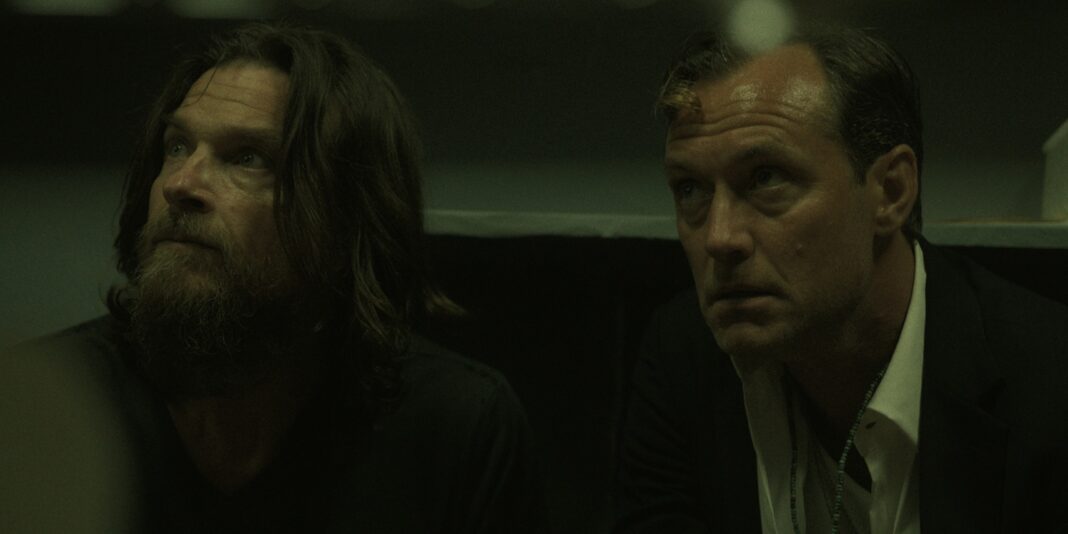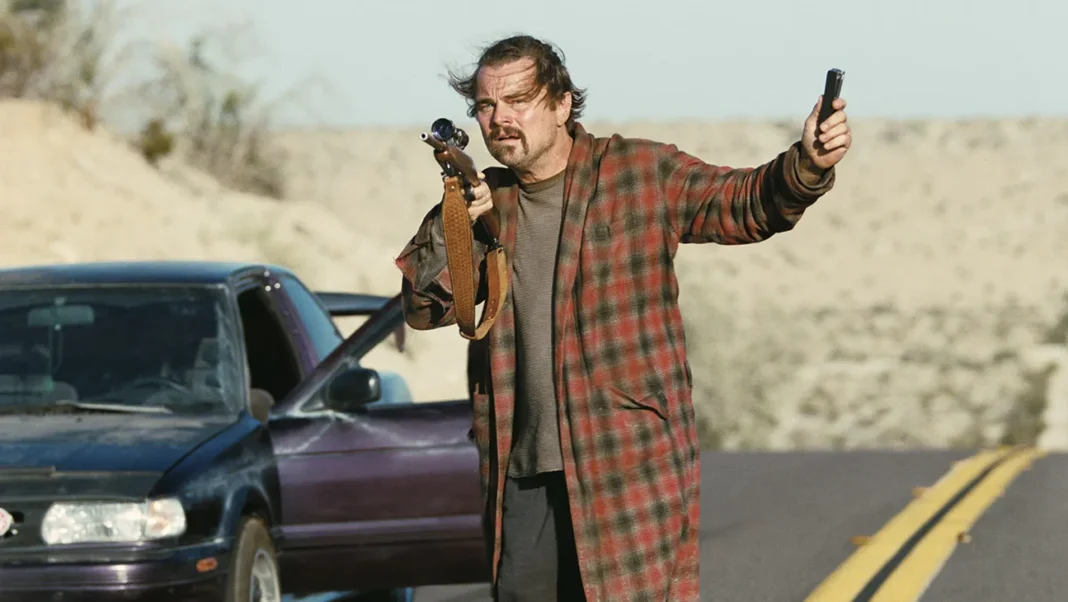Starting and running a business is no easy feat. Early success may be fleeting, and if it is achieved, it can just as quickly dissipate thanks to any number of complicating factors. It may be possible to stay afloat for a while and make it appear as if there’s no cause for alarm, but one simple mistake or misfortune can change all that. Black Rabbit meets its two protagonists as things aren’t looking their way, following them down a desperate path towards survival and some hope of redemption.
Jake (Jude Law) runs the Black Rabbit, a popular New York City bar and restaurant that has attracted a solid clientele. His brother Vince (Jason Bateman), who is drowning in debt and scrambling to find a way out, returns, welcomed back by some and distrusted by others who know his true nature. His arrival couldn’t come at a worse time, since the money he owes and his association with his brother only compounds the fact that Jake is also in financial trouble, made all the more glaring and urgent by local elements determined to collect from whichever brother is able to come up with the money.
Black Rabbit reteams Law with married creators Zach Baylin and Kate Susman, who served as executive producers for the film The Order, which Baylin also wrote. This project isn’t nearly as dark, removed from the domain of rural white supremacy and instead focused on how even people who are familiar and don’t hide in the shadows can be just as threatening. The tone of this show sometimes feels similar to Ozark, but its star Bateman isn’t playing the smart, quietly calculating operator but instead the one who’s only adding to the chaos and doesn’t realize how far he’s slipping.
Law and Bateman, who have done other TV series in recent years including The Third Day and The Outsider, respectively, do make a good team, even if audiences rarely get to see them on the same page at this stage of their relationship. They both express recognizable characteristics often attributed to the roles they play, like Law’s combination of effortless charm and a masked sense of insecurity and Bateman’s dry humor that makes it feel like he isn’t taking any situation nearly seriously enough and that he doesn’t really care what’s about to happen to him or those in his orbit.
In a landscape of so many crime series, this show doesn’t entirely stand out. The supporting cast features talented actors portraying worthwhile and intriguing characters, including Ṣọpẹ́ Dìrísù, Dagmara Domińczyk, Gus Birney, and Troy Kotsur. And Law and Bateman are both extremely watchable even if their characters don’t feel expressly unique, as they portray different reactions to extreme stressors and attempts to dig themselves out of holes that can’t really be filled.
It’s good to see that, in addition to Baylin and Susman, Law and Bateman are choosing to work with other past collaborators. Bateman himself directs the show’s first two episodes before handing the baton to Laura Linney, his Ozark costar, and then another Emmy-nominated director on that show, Ben Semanoff. Rounding out the series’ final two episodes is Justin Kurzel, who directed The Order. Fans of Ozark and The Order should find recognizable themes and styles in this project, which doesn’t possess the same starkness of either of those but does manage to find ways to draw in audiences and make them root for these characters to at the very least survive, if not figure out a way to reach a point of stability. This is one show that definitely benefits from a binge, inviting audiences to dive deep with its characters and follow them on their angst-filled rollercoaster ride.
Series Rating: 7/10



